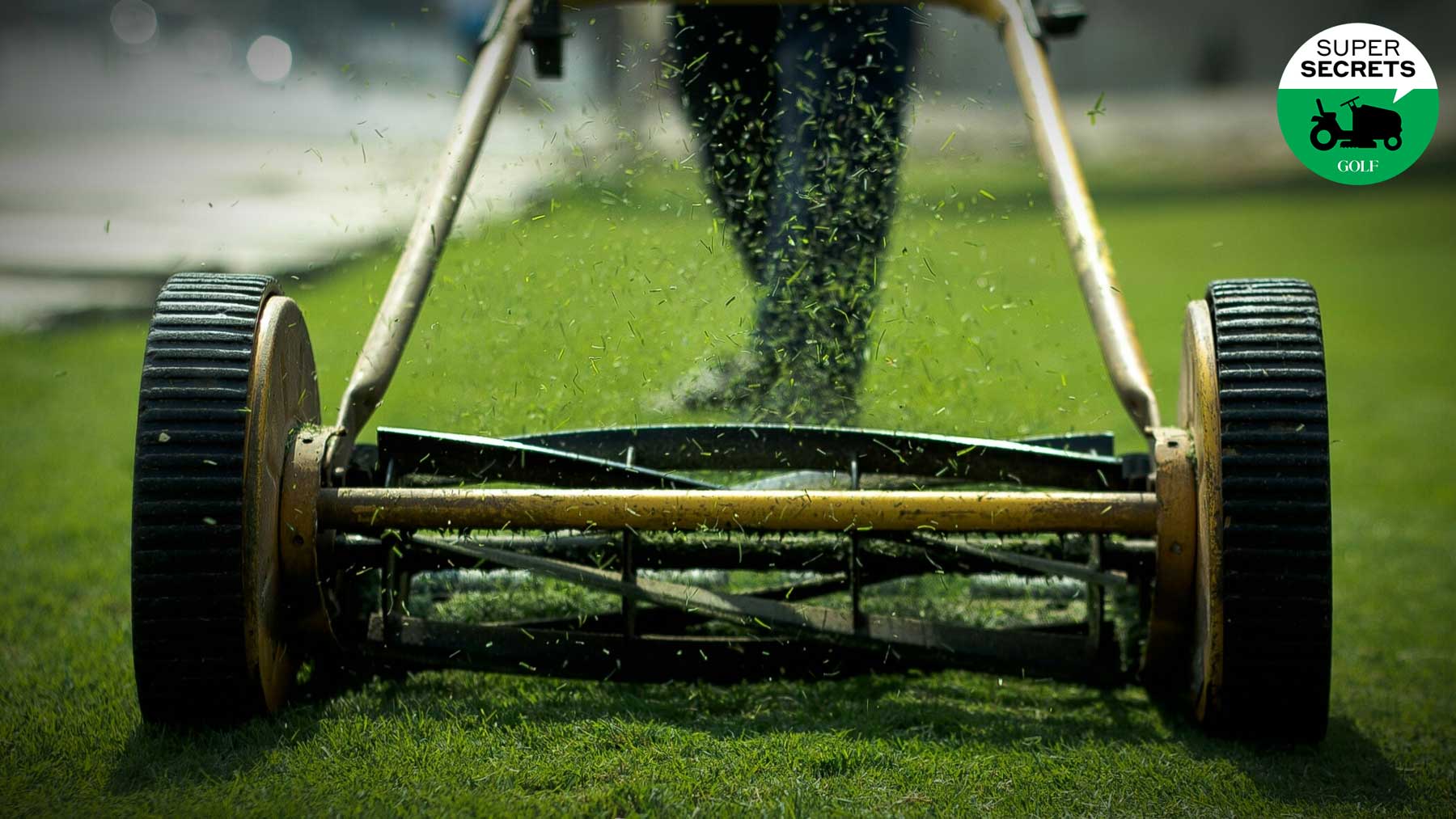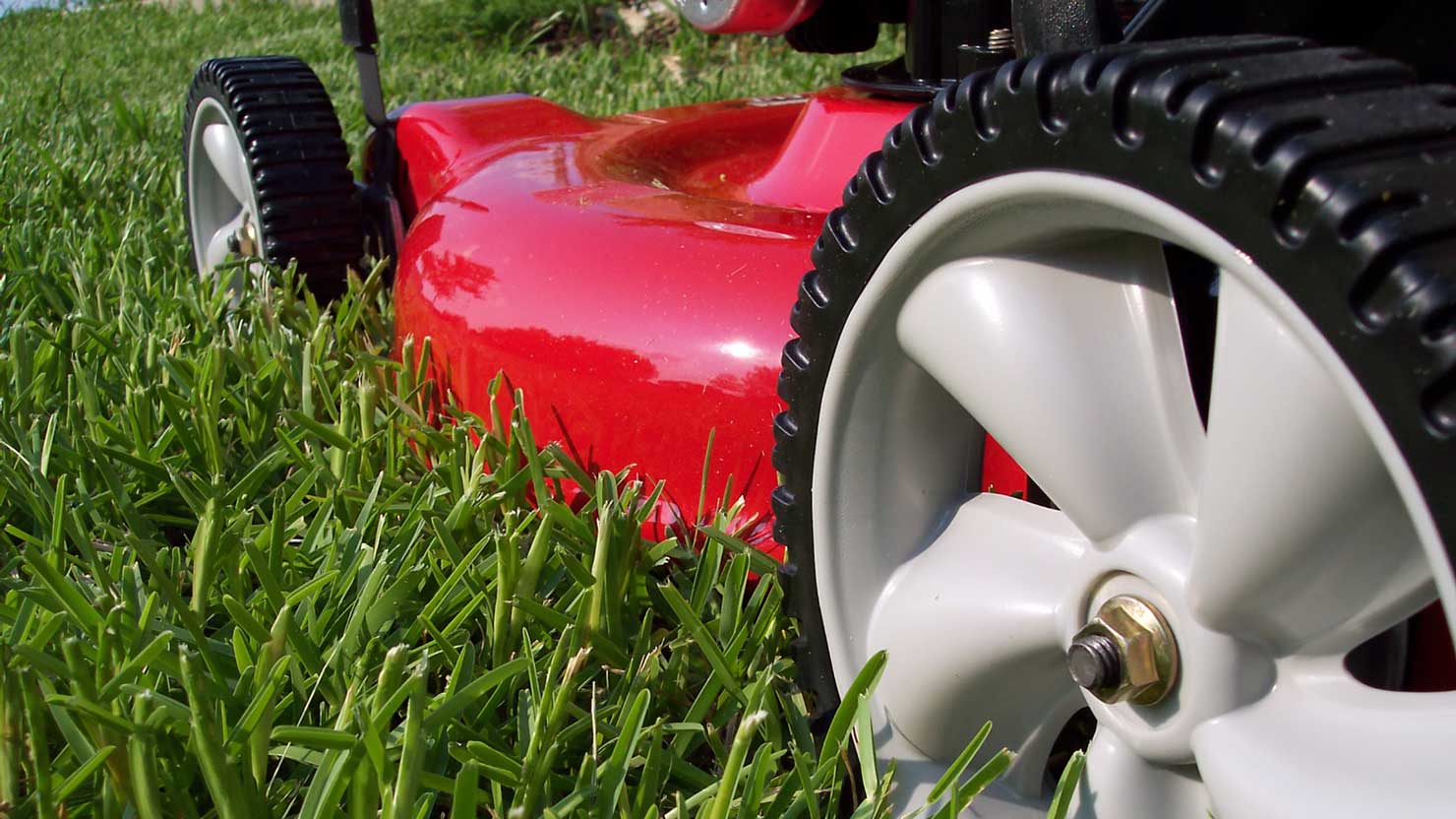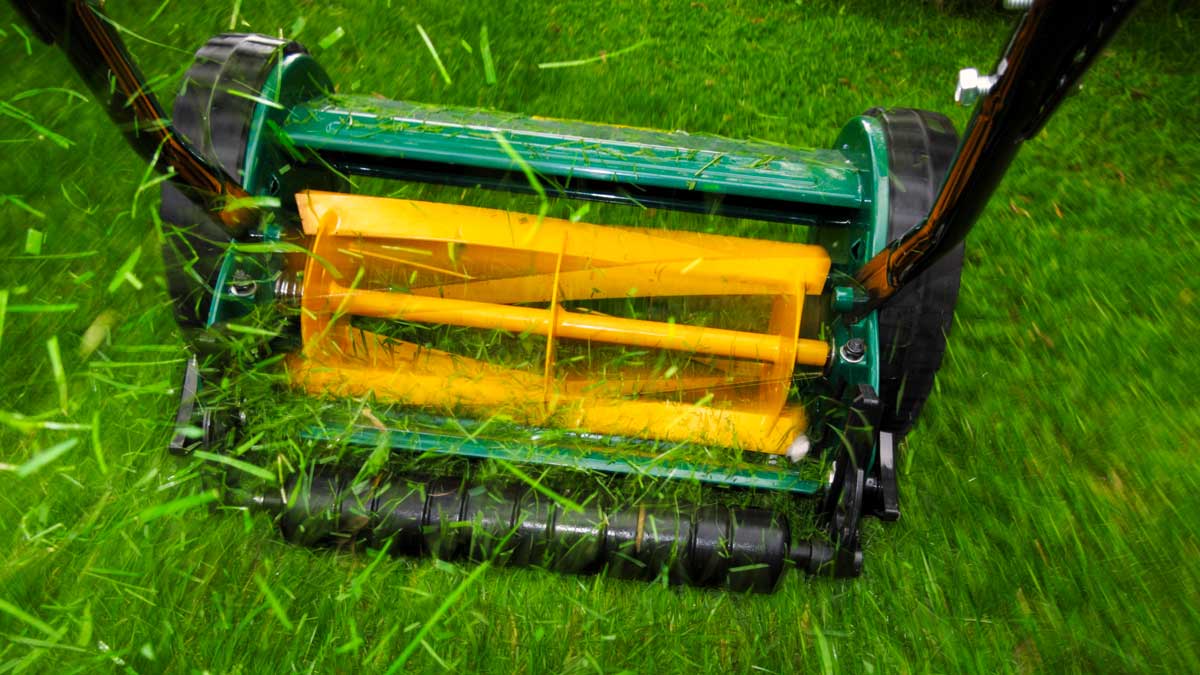
Just as barbers can opt for clippers or scissors, you have a choice of mowers.
getty images
Mowing grass is like cutting hair: similar goals (make it shorter!) with different tools to get the job done. And just as barbers can opt for clippers or scissors, superintendents have a choice of mowers.
What’ll it be: rotary or reel?
As its name suggests, a rotary mower cuts with a spinning blade. A reel mower functions with a reel and a bed knife, with a slicing action akin to shears.

A rotary mower cuts with a spinning blade.
getty images (both)

A reel mower functions with a reel and a bed knife.
How to decide between them?
That depends on a range of factors, including your budget, the type of grass your tending, the purpose your turf serves and the terrain itself.
So says Matt Guilfoil, superintendent of Desert Canyon Golf Club, in Ariz., and co-host of the turf-care podcast, From the Jingweeds, a podcast devoted to the turf-care trade.
We asked him to help us cut through the considerations — for supers and the rest of us at home.
Field of Play
For finely conditioned turf, Guilfoil says, reel mowers are the way to go, as they can cut lower with greater precision. The cut with a reel mower is also sharper and cleaner, Guilfoil says, which is healthier for the grass.
“It’s more like snipping compared to the ripping and tearing you can get with a rotary mower,” he says. On the flip side, though reel mowers can be set lower, rotary mowers are easier to adjust. The taller the grass, the better they perform.
Turf Type
As a general rule, warm-season grasses have tougher blades than their cool-season counterparts, which can make them the harder to cut. Reel mowers tend to be better at slicing through coarse turf.
Cost
Rotary mowers are cheaper to purchase and maintain, with blades that can be swapped out or sharpened at home, assuming you are reasonably handy. Not so with a reel mower.
“Unless you’re a retired superintendent or mechanic who took a bunch of fancy equipment with you when you left the job, you’re not fine-tuning a reel mower at home,” Guilfoil says.
Terrain
On contoured ground, reel mowers are generally better at following the lilt of the terrain. Try to run a rotary mower over the same subtle humps and hollows, and you’re more likely to dig into the grass or scalp the turf.
On the course and at home
At Desert Canyon, Guilfoil and his crew use reel mowers on greens, fairways and tees — pretty much everywhere. The exception is the rough along the edges of the desert, where rocks and other hard debris can cause expensive damage to reel mowers. In those shaggy areas, rotary mowers do the trick just fine, and if the blades get nicked or dinged, the repairs are cheaper.
Given the higher purchase price and cost of repair, reel mowers are rarities for homeowners. “If we are talking about someone’s yard, it makes no sense to have a reel mower, unless you want that lawn to look like a fairway or a green.”










